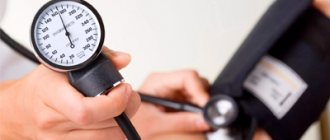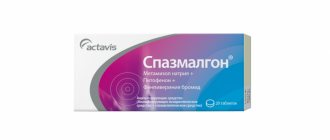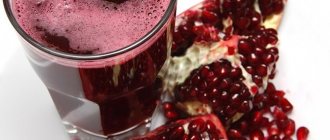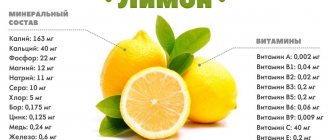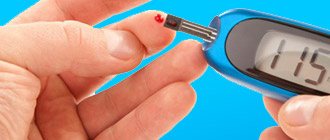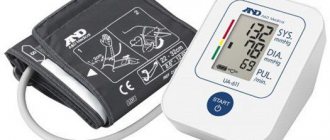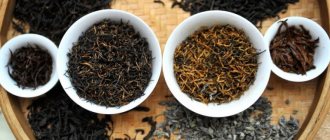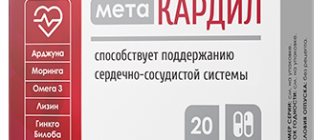Blood pressure is called blood pressure. When the heart contracts and blood is pumped further through the arteries, blood pressure occurs.
Increased blood pressure occurs for many reasons, some of which are tension and stress, as well as alcohol abuse.
When high blood pressure becomes a regular companion of an alcoholic, there are real reasons for concern.
Factors that increase blood pressure
Factors that influence the increase in blood pressure are: excess weight, poor diet (excessive consumption of salty foods), physical inactivity, constant stress, depression and use of contraceptives (in women).
Alcohol consumption is one of the most common causes of high blood pressure among the population.
In chronic alcoholism, alcoholic drinks increase blood pressure, after which it can drop sharply when a person is sober or suffers from a hangover during the abstinence period.
High blood pressure is often observed in alcoholics who regularly drink alcohol.
Combination of alcoholic beverages with medications for hypertension
Combining alcohol intake with drug treatment for hypertension is not allowed. Patients taking medications for high blood pressure are advised to avoid drinking alcohol on the day of taking the medications. Ethanol present in the body increases the toxicity of medications and increases the risk of adverse reactions. Each drug has a huge list of possible side effects, sometimes causing death.
Before taking alcoholic beverages, you should check the compatibility of the medications you are taking with alcohol and read the instructions for the medication. If you plan to celebrate any holiday, you can do without alcohol. As a last resort, you can postpone taking the prescribed medication to the next day. Preference should be given to sober communication with close friends, avoiding the development of a negative scenario with an uncertain ending.
Medicines for hypertension should not be taken independently in cases of pressure surges that occur as a result of deep and prolonged drinking, as this can aggravate the condition. The first thing to do is try to get out of the binge, unless of course the situation is critical. After cleansing the body of ethanol breakdown products, you can begin treating hypertension. It is not always possible to get out of binge drinking on your own without qualified medical help. A rapid increase in blood pressure and alcohol poisoning can lead to the death of the patient. Therefore, in case of sudden jumps in blood pressure, you should urgently seek help. The indication for calling an ambulance is systolic pressure above 180 mmHg. If the systolic pressure is below 180 mm Hg, you need to quit the binge, gradually reducing the amount of alcohol taken.
It is necessary to monitor your blood pressure all the time. If it continues to grow, and in addition to this, disturbing symptoms appear, you need to call an ambulance. If you manage to get out of the binge smoothly, you can begin to lower blood pressure using a special treatment regimen after binge drinking.
Alcohol consumption by people with high blood pressure
The danger of drinking alcohol for people with high blood pressure is that it is extremely damaging to health.
The risks of experiencing high blood pressure among alcoholics are much higher than among people who drink alcohol no more than once a month in small quantities.
The total volume of alcohol increases if a person drinks alcohol every day. This is dangerous because blood pressure does not have time to reach normal levels. Alcohol constantly causes high blood pressure, which is life-threatening.
Prevention
Prevention should begin with giving up alcohol. If you can’t do this right away, you need to reduce the dose of alcohol you drink at a time and drink it as rarely as possible.
But only a complete abstinence from alcohol will make it possible to avoid pressure surges. And if hypertension has already developed due to alcohol, then it definitely needs to be completely excluded. Otherwise, tragic consequences cannot be avoided .
But you should also follow general prevention recommendations:
- Spend time in the fresh air as often as possible (in a park, or best of all, in nature, outside the city limits).
- Form a correct, complete diet, with a predominance of fresh vegetables, fruits, and natural juices. The consumption of fatty, fried, spicy and salty foods should be minimized.
- Drink enough plain still water every day.
- Reduce the consumption of coffee and tea, replacing them with natural compotes, fruit drinks, herbal teas (you need to pay close attention to the composition of herbal tea, as there are plants that increase blood pressure).
- Include light physical activity in your daily routine, such as walking, cycling, swimming. But you can’t overload, the loads should be moderate and enjoyable.
- Quit smoking if you have such a habit.
- See a cardiologist on an ongoing basis, and also periodically check your blood pressure levels yourself.
If you follow all the recommendations, you can prevent the development of hypertension. If it already exists, then you can stop its progression, maintain good health, and reduce the risks of complications.
Alcohol consumption by overweight people
Systolic blood pressure in people who drink alcohol excessively is much higher than in those who drink alcohol within the permissible limit. According to statistics, hypertension is much more common in alcoholics than in other people.
Please note that drinking alcohol for overweight people, as well as for older people, becomes deadly because blood pressure rises much more.
Remember that alcoholism leads to obesity; an increase in glucose levels in the blood of an alcoholic can result in a dangerous disease - diabetes.
Additional recommendations
- In the heat, the risk of a jump in blood pressure increases. Therefore, you should not quench your thirst with beer or cold wine, which may not have the best effect on the tonometer readings.
- At low blood pressure, alcohol is not as dangerous as at high blood pressure, and does not raise the numbers on the tonometer to critical levels. But alcohol abuse with low blood pressure can lead to a mini-stroke and other serious consequences for the body.
- Regular consumption of strong drinks can lead to alcoholism, which further aggravates the condition of the cardiovascular system with low or high blood pressure.
- You should not snack on alcohol with salted nuts, chips, or dried fish. Such food retains fluid in the body, which affects blood pressure, causing it to increase.
- Drink only high-quality licensed alcohol. Do not consume artisanal drinks. This threatens with irreparable consequences both for blood pressure and for the entire body as a whole.
- If the pressure after drinking alcohol increases to 150/110 mm Hg. Art. and your health has worsened, you need to seek medical help and not take the usual antihypertensive drugs that lower blood pressure, which may be incompatible with alcohol.
- The following conditions are also reasons to call an ambulance after drinking alcohol: vomiting, which cannot be stopped using the usual home methods, disorders of consciousness, autonomic disorders in the form of rapid heartbeat, cold extremities, paralysis, as well as a decrease in blood pressure below 90/50 mm Hg. Art.
Hypertension and treatment of hypertension in alcoholism
Hypertension is a disease that requires constant monitoring by specialists, as well as treatment, which will be selected by a doctor after a comprehensive examination of the body. Neglect of one's health can be disastrous for an alcoholic.
Timely seeking help for hypertension can stabilize the condition of an alcoholic through a course of therapy in a medical center under the supervision of specialists.
Author:
Oleg Vasilievich Shevchenko
Is there an alternative
Is it possible to drink with high blood pressure? Doctors give a clear answer that this will have a detrimental effect on the condition of the brain, blood vessels and all functions of the body as a whole. During the purification of the blood from the breakdown products of ethyl alcohol, there is a strong load on the capillaries, the blood pressure increases, which is fraught with the development of a hypertensive crisis. But is there an alternative if there is a really good reason to drink or if it is simply inconvenient to refuse the offer of friends and relatives?
Vodka increases blood pressure, but as an option, you can drink beer instead. Light varieties of the drink do not contain large amounts of ethyl alcohol, do not negatively affect blood pressure and will not cause harm to health. To avoid a hangover and the harmful effects of alcohol breakdown, beer should be drunk in reasonable quantities; a single permissible dose should not exceed 330 ml, no more than 1-2 times a week.
If the doctor has diagnosed stage 2 hypertension, the amount of beer will have to be reduced to a glass once every 7 days. It is not recommended to drink beer for patients with heart and kidney failure, as well as for chronic hypertension. If there are no problems with the kidneys, the drink will have a beneficial effect on the body (consumed within the acceptable limit) - the amount of urine will increase, blood pressure will decrease, and swelling will go away.
Another option to avoid a hypertensive crisis is to drink natural red wine 2-3 times a week, 100-150 ml, no more. Otherwise, instead of benefiting the body, it will have a harmful effect on blood pressure levels. Drinking red wine within acceptable limits helps increase the elasticity of capillaries, normalizes their tone, helps lower blood pressure and stabilize its indicators.
No ads 3
Is there a healing dose?
Those who are interested in whether vodka lowers or increases blood pressure will be interested in the following information. Drinking alcohol has two effects on blood pressure. If you drink 30-50g of vodka, your blood pressure may drop and vascular tone will improve. Doctors explain this by saying that after the first drink, the blood vessels dilate, blood flow accelerates, and the load on their walls decreases. This is how ethanol (a component of ethyl alcohol) contained in alcoholic beverages affects blood vessels.
It seems useful, but it's not that simple. This state does not last long. After about 20-30 minutes, the vessels spasm, and blood pressure rises sharply. This is due to the fact that the acceleration of blood flow in the vessels leads to increased work of the heart muscle. The heart begins to work intensively, the pulse accelerates, and the pressure rises. We come to a vicious circle.
In addition, usually the participants of the feast do not limit themselves to one glass. With each subsequent portion of drinking, blood pressure continues to rise.
How does the body react to increasing doses?
If after taking a small dose of alcohol vascular tone improves, then increasing the portion, on the contrary, worsens vascular tone. The vessels spasm and contract, and it becomes increasingly difficult for blood to circulate throughout the body. And this increases the pressure. And with every glass you drink, your blood pressure levels increase. In the future, a hypertensive crisis or a heart attack while intoxicated may occur. It is for this reason, according to doctors, that alcohol abuse is harmful to everyone, and to hypertensive patients in particular.

